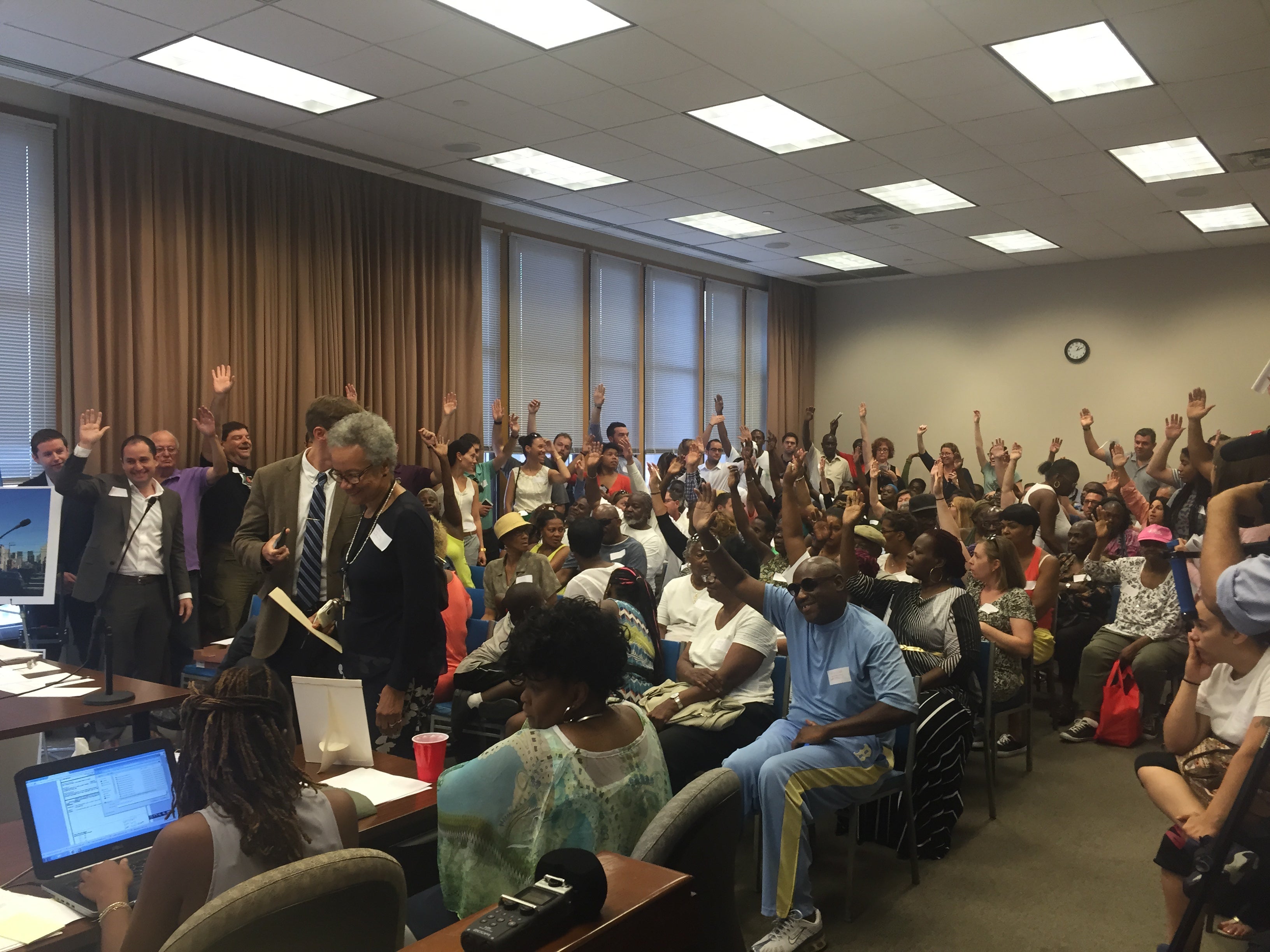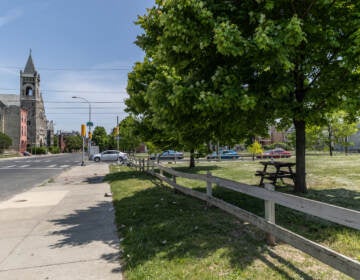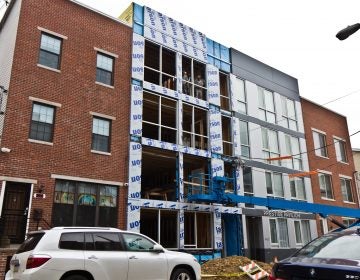What should Philly expect in a new Zoning Board chair?

During the 2015 mayoral race Jim Kenney expressed a desire to professionalize the Zoning Board of Adjustment (ZBA) and ensure that it operated in a fair and “speedier” fashion. In almost the same breath, the would-be mayor noted political considerations would also play a role. When he appointed Jim Moylan, head of the Pennsport Civic Association, he accomplished a little of both.
By all reports Moylan did move the board’s meetings along at a steadier clip, although some observers were unhappy with his background and his ties to International Brotherhood of Electricians Local 98, which supported Kenney’s candidacy. As a recent Inquirer editorial epitomizing this perspective put it, “what exactly was a chiropractor doing heading the zoning board in the first place?”
When Moylan resigned as chair of the ZBA two weeks ago, much of the coverage focused on his connection to the ongoing FBI investigation targeting Local 98. Union chief John “Johnny Doc” Dougherty and his political power seem to be at the center of the case and the obscure but powerful ZBA is, as Jared Brey argued, the most direct manifestation of the electricians’ power in government. Although Moylan led the Pennsport Civic Association, an RCO for the neighborhood that includes Dougherty’s FBI-raided house, he also served as the labor leader’s chiropractor and as a political consultant for the union.
For those who pay close attention to the ZBA and its workings—zoning lawyers, developers, planners, and community groups—Moylan’s resignation is meaningful for reasons beyond the FBI drama. For them, the position is one of the more important functions in city government and its future leadership is of immediate consequence.
The ZBA considers zoning appeals and special exceptions, dispensing variances, which allow developers to diverge from a property’s underlying zoning rules. The body meets twice a week to consider the hundreds of cases that come before it ever year.
The ZBA is considered one of the most quietly powerful boards in the city, but its prominence and caseload were supposed to be greatly reduced by the zoning reform law of 2012. By bringing the city’s zoning up-to-date, the need for variances would theoretically have been diminished; more base zoning would be brought in line with existing and sensible uses.
Instead the board still considers far more cases than its counterpart in New York, a city that is almost six times as large and enjoys far hotter real estate market. The ZBA also still grants the overwhelming majority of appeals that come before it, even as the process of updating the city’s zoning map progresses, take current uses, market demands, and community preferences into account.
Since Moylan’s departure the ZBA’s schedule has gone forward as normal under acting chair, Carol Tinari, the ZBA’s vice chair, longest-serving current member, and lone holdover from the Nutter years. (The commissioner for Licenses and Inspections, David Perri, is available to ensure a quorum if the need arises.) But the question of who will replace Moylan looms large over the future of development, and city planning, in Philadelphia.
Moylan’s tenure at the head of the ZBA was defined by efficacy, or depending on who you ask, pure speed. He also had a reputation for being exceedingly gracious in his board’s approval of variances. But his predecessors, Julia Chapman and Lynette Brown-Sow, approved 90 percent of all variance requests brought before the ZBA so Moylan’s ability to be even more generous was limited.
From the perspective of many developers and the zoning lawyers who represent them, Moylan’s ZBA wasn’t defined by the variances granted but by a more predictable and rational regimen. Under prior chairs, Wednesday hearings sometimes lasted deep into the evening hours. Developers’ representatives and the interested community groups would argue their cases relentlessly, often delving into issues beyond the purview of the ZBA.
“He [Kenney] should look for someone just like Dr. Moylan,” says Joe Beller, a zoning lawyer who has practiced in Philadelphia since the 1960s. “He kept things moving, he was courteous to everybody but didn’t allow people who were testifying to digress into areas over which the zoning board had no power or control. He was a master of keeping things on track and I thought he ran an extremely efficient board.”
Developers’ representatives appreciated this propensity to move through the docket at a rapid clip, which meant their clients wouldn’t get hit with bills of unpredictable size for hours spent fruitlessly waiting for the case to come up.
“Going forward it would be nice to see someone maintain that continuity and keep the trains running on time,” says Matt Monroe, a commercial zoning lawyer with Spruce Law who has been presenting cases before the ZBA for the past three and a half years.
Like Beller, Monroe and the other zoning lawyers interviewed for this article emphasized that Moylan’s propensity for moving quickly through the caseload is essential in a city where, three years after a new zoning code went into effect, zoning remains unpredictable.
“We did update the zoning code, but city council is constantly changing it,” says Monroe. “We also have an issue with remapping, where a number of areas of the city remain up in the air. When you have a changing zoning code and an incomplete map, a strict planning approach can crush reasonable projects that can really benefit communities.”
But many critics of the ZBA feel that the body is breezily efficient and that its proclivity for dispensing variances and exceptions undercuts the attempted rationalization of the zoning code. The remapping process is still incomplete, but sections of the city have been updated and presumably the effects should be apparent at the ZBA.
“The board has always said yes to the vast majority of cases, and I think the ZBA just says yes too much,” says Greg Pastore, a landlord and former chair of Bella Vista’s zoning committee who served on the Zoning Code Commission that rewrote the code and then on the ZBA. The Kenney administration did not renew his appointment. “The simplistic answer is the [new head of the] board should say no to some things that don’t have a reasonable hardship argument.”
Having some kind of hardship is the baseline reason zoning relief may be granted, but that is not the standard actually used in evaluating most zoning appeals here.
For Pastore, the ZBA simply doesn’t take enough time to consider each individual case. What looks like efficacy and speed to a development-side zoning lawyer is instead an inability or unwillingness to take into consideration the dictates of the zoning code or the specifics of each individual case. And because the zoning board does not leave a written record explaining the reasoning for its decisions, a case history cannot be built.
“Another concrete thing [the next ZBA head could do], would be to write down the decisions, but you might have to ramp up the staffing to do it,” says Pastore. “Or you could stay there later or add a third day or something.”
For close and critical watchers of the ZBA, the unrelenting flow of variances undercuts the rationalization of the city’s zoning process.
“The ZBA needs to be lead in a direction that conforms to the spirit and the letter of the new zoning code,” says Matt Ruben, president of the Northern Liberties Neighbors Association, when asked what he hopes to see from Mayor Kenney’s new appointee.*
“There’s one philosophy that sees a well-designed and well-implemented zoning code as an important guide for land use and development,” says Ruben. “There’s another philosophy that sees zoning as an inconvenience and an impingement on the ability to do whatever you want with your property. I don’t think the ZBA should be proponents of the latter view. They should see the zoning code as something they have an important role in defending the integrity of.”
Ruben had nothing to say on Moylan’s tenure in particular, but argues that in general the ZBA has been too unpredictable. Sometimes he’s seen the board be too free in granting variances, other times almost doctrinaire in their refusal to allow for development against the old and outdated zoning in areas that haven’t yet been remapped. But a board with a professional planning bent could consider cases in a more predictable and professional fashion.
What use is professional city planning, the argument runs, if the zoning code goes regularly unenforced because a developer can just seek a variance? If a firm knows they can just get easy approval at the ZBA, they are much less likely to allow their buildings to be guided by existing zoning.
The wishes of both development-side zoning lawyers, civic groups, and proponents of professional planning will all be constrained by the material facts about compensation and hours ZBA members have to deal with. Board members are compensated $100 per meeting, no matter the length, with an annual ceiling of $22,000.
While such meetings in suburban areas often take place on weekday evenings, the sheer volume of cases before the city’s ZBA makes such timing impossible. The meetings take place on Tuesdays at 9:30 AM and throughout the afternoon on Wednesday.
As a result, the new head of the ZBA, and any member of the board, must be someone with either an extremely flexible work schedule or a personal fortune that obviates the need for a regular income.
“It really comes at a major sacrifice to your family, to your free time and, if you are working, to your job,” says Carl S. Primavera, a veteran Philadelphia zoning lawyer. “This isn’t a job you can just call in to. It’s too time consuming, too much of a commitment to just do it without putting a lot yourself into it. A lot of good people may think twice [before accepting the appointment].”
*Disclosure: Matt Ruben serves on PlanPhilly’s advisory committee.
WHYY is your source for fact-based, in-depth journalism and information. As a nonprofit organization, we rely on financial support from readers like you. Please give today.






